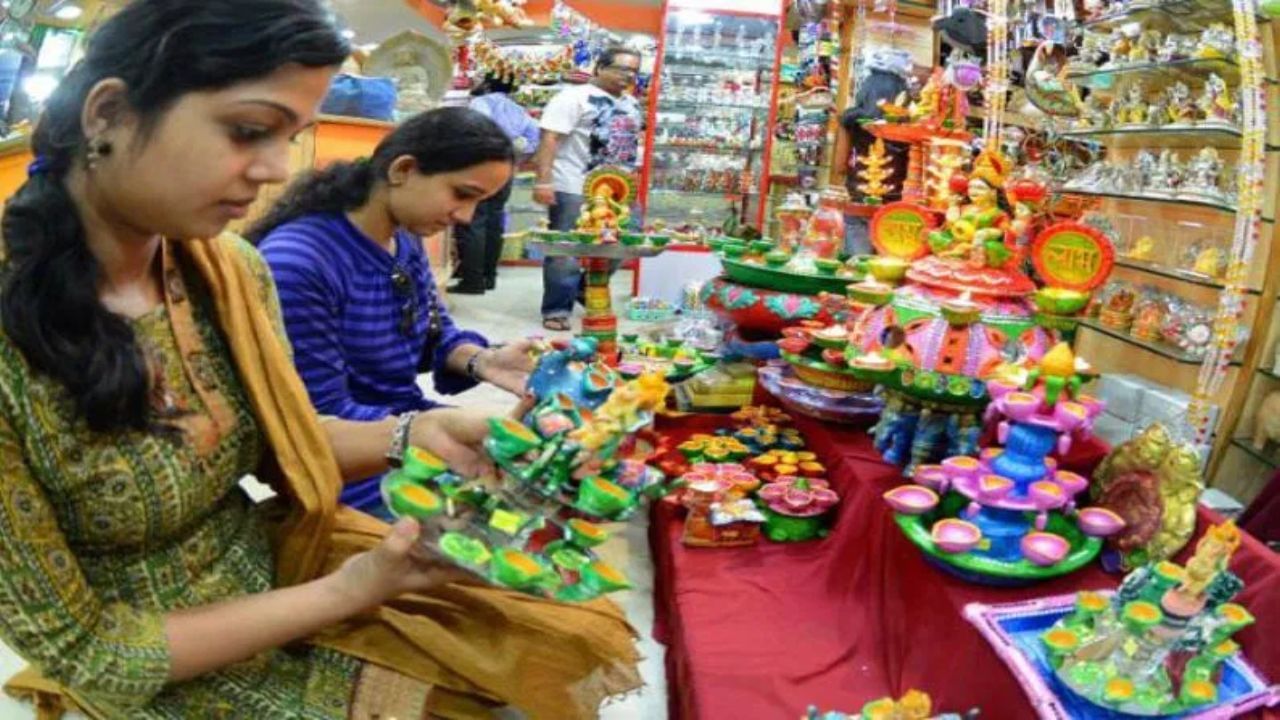According to the report, purchases worth more than Rs 6 lakh crore have been made in the country this festive season.
America had imposed 50 percent tax on India. Due to which a huge decline in the country’s export income was being estimated. In such a situation, the Prime Minister of the country and his team played a move to manage the country’s economy, which no one had expected. The government announced GST reform a few days before the beginning of the festive season. Due to which, apart from household goods, tax on many goods was reduced. As soon as the festive season started, there was a flood of buyers in the markets across the country. The special thing is that this time all the shopping records were broken during the festive season. Also the country’s economy got a big boost. It is estimated that purchases worth more than Rs 6 lakh crore have been made in this festive season. GST reform has proved to be the hero of this festive season with the consumer. Let us also tell you whose figures have been presented in the Bloomberg report.
Festis season worth Rs 6 lakh crore
According to data shared with Bloomberg News by retail intelligence platform Bizom, spending between September 22 and October 21, the period between Hindu festivals like Navratri and Diwali, increased by 8.5 percent compared to the same period last year. BC Bhartia, national president of All India Traders Confederation, said in a statement that sales across the country stood at more than Rs 6 lakh crore ($67.6 billion), with items like jewellery, electronics, apparel, accessories and sweets in highest demand. The recovery in sales reflects a shift in local consumption after an initial recovery in April, which was halted due to heavy US tariffs. The Narendra Modi-led government has tried to handle this by cutting the Goods and Services Tax (GST) on about 400 categories of products from September 22.
Tremendous increase in car purchases
India’s largest carmakers – Maruti Suzuki India Ltd, Tata Motors Passenger Vehicles Ltd and Mahindra & Mahindra Ltd – saw a jump in monthly sales. There was a reason for this also. The biggest tax relief of the last decade worked to reduce the prices of cars. Hyundai Motor India Ltd. saw a 20 per cent rise in sales on the Hindu festival of Dhanteras – an auspicious day for purchasing large items including gold – compared to last year, while Tata Motors delivered more than 1,00,000 cars between Navratri and Dhanteras. Mahindra saw a growth of 27 percent in tractor sales. In fact, a good monsoon increased rural earnings. After that the tax cut encouraged more purchases for Mahindra.
work going on on sunday
Maruti’s production team is working even on Sundays to handle the surge in bookings, especially for small cars, senior marketing and sales executive Partho Banerjee said in a post-earnings call last week. Banerjee said the demand for entry-level models like Alto, S-Presso, WagonR and Celerio is so high that Maruti dealers now joke that two-wheeler riders upgrading to cars leave their helmets in their showrooms.
Financial services companies like Kotak Mahindra Bank Ltd and SBI Cards and Payments Services Ltd saw good growth in spending across all categories. Kaleeswaran A., Chief Financial Officer, Crompton Greaves Consumer Electricals Limited. told Bloomberg News that the kitchen category saw a boom during festive shopping. Products like pressure cooker got the benefit of tax cut. Of course, the tax changes also disrupted the supply chains of some Indian businesses and hurt sales. There is a reason for this also. Companies and distributors were in a hurry to sell goods at the old rates. In some cases, buyers postponed large purchases from mid-August, when Modi first announced the cuts, to late September, when the lower prices came into effect.
pent up demand
Nomura economists Sonal Verma and Arudeep Nandi wrote in a note dated October 27 that this jump in sales should be interpreted with caution as a major reason for this could be more pent-up demand than usual. He wrote that an accurate metric “will also need to take into account data trends for the December to January period. According to an October 29 report from BofA Securities, although the economic challenges have eased slightly, factors such as slow income growth, weak labor market and diminishing wealth effects are weighing on sentiment and demand conditions.”
Companies have high expectations
Crompton’s Kaleeswaran expects the recent sales momentum to continue in January and beyond. The fan and lamp maker is keeping an eye on growth in real estate, wire and cable sectors for signs of uplift in domestic sentiment. Kaleeswaran said that some of these positive signs are giving us confidence “that consumption is moving in the right direction.”
